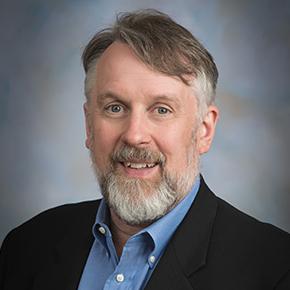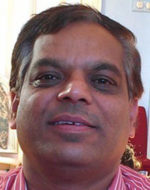Abstract:
Computing is being transformed to a model consisting of services that are delivered in a manner similar to utilities such as water, electricity, gas, and telephony. In such a model, users access services based on their requirements without regard to where the services are hosted or how they are delivered. Cloud computing paradigm has turned this vision of “computing utilities” into a reality. It offers infrastructure, platform, and software as services, which are made available to consumers as subscription-oriented services. Cloud application platforms need to offer (1) APIs and tools for rapid creation of elastic applications and (2) a runtime system for deployment of applications on geographically distributed computing infrastructure in a seamless manner.
The Internet of Things (IoT) paradigm enables seamless integration of cyber-and-physical worlds and opening up opportunities for creating new class of applications for domains such as smart cities and smart healthcare. The emerging Fog/Edge computing paradigm is extends Cloud computing model to edge resources for latency sensitive IoT applications with a seamless integration of network-wide resources all the way from edge to the Cloud.
This keynote presentation will cover (a) 21st century vision of computing and identifies various IT paradigms promising to deliver the vision of computing utilities; (b) innovative architecture
for creating elastic Clouds integrating edge resources and managed Clouds, (c) Aneka 5G, a Cloud Application Platform, for rapid development of Cloud/Big Data applications and their deployment on private/public Clouds with resource provisioning driven by SLAs, (d) a novel FogBus software framework with Blockchain-based data-integrity management for facilitating end-to-end IoT-Fog/Edge-Cloud integration for execution of sensitive IoT applications, (e) experimental results on deploying Cloud and Big Data/ IoT applications in engineering, and health care (e.g., COVID-19), deep learning/Artificial intelligence (AI), satellite image processing, natural language processing (mining COVID-19 research literature for new insights) and smart cities on elastic Clouds; and (f) directions for delivering our 21st century vision along with pathways for future research in Cloud and Edge/Fog computing.
Biography:
Dr. Rajkumar Buyya is a Redmond Barry Distinguished Professor and Director of the Cloud Computing and Distributed Systems (CLOUDS) Laboratory at the University of Melbourne, Australia. He is also serving as the founding CEO of Manjrasoft, a spin-off company of the University, commercializing its innovations in Cloud Computing. He has authored over 850 publications and seven text books including “Mastering Cloud Computing” published by McGraw Hill, China Machine Press, and Morgan Kaufmann for Indian, Chinese and international markets respectively. Dr. Buyya is one of the highly cited authors in computer science and software engineering worldwide (h-index=150, g-index=322, and 117,200+ citations). Dr. Buyya is recognised as Web of Science “Highly Cited Researcher” for five consecutive years since 2016, IEEE Fellow, Scopus Researcher of the Year 2017 with Excellence in Innovative Research Award by Elsevier, and the “Best of the World”, in Computing Systems field, by The Australian 2019 Research Review. Software technologies for Grid, Cloud, and Fog computing developed under Dr.Buyya’s leadership have gained rapid acceptance and are in use at several academic institutions and commercial enterprises in 50+ countries around the world. Manjrasoft’s Aneka Cloud technology developed under his leadership has received “Frost New Product Innovation Award”. He served as founding Editor-in-Chief of the IEEE Transactions on Cloud Computing. He is currently serving as Editor-in-Chief of Software: Practice and Experience, a long standing journal in the field established 50+ years ago. For further information on Dr.Buyya, please visit his cyberhome: www.buyya.com
 |
Title: Self-Adjusting Networks: The Power of Choices in Datacenter Topology DesignProf. Stefan Schmid |
Abstract:
Datacenter network traffic is growing explosively, and next-generation workloads, e.g., related to machine learning and artificial intelligence, are likely to further push networks towards their capacity limits. While over the last years, several interesting new datacenter network architectures have been proposed to improve the efficiency and performance of datacenter networks, these networks typically have in common that their topology is fixed and cannot be reconfigured to the traffic demand they serve.
In this talk, I will discuss a different approach to operate networks: reconfigurable “self-adjusting” networks whose topology adjusts to the workload in an online manner. Reconfigurable networks are enabled by emerging optical technologies, allowing to quickly change the physical topology at runtime. This technology also introduces a vision of demand-aware networks which tap a new optimization opportunity: empirical and measurement studies show that traffic workloads feature spatial and temporal structure, which in principle could be exploited by reconfigurable networks. However, while the technology of such reconfigurable networks is evolving at a fast pace, these networks lack theoretical foundations: models, metrics, and algorithms – we have fallen behind the curve. The objective of this talk is to help bridge this gap, and introduce to the IEEE CloudNet community a rich and potentially impactful research area. We first discuss technological enablers and report on motivating empirical studies. Our main focus then is on the new models and algorithmic and practical challenges introduced by this field. In particular, we will review existing algorithms and complexity results, report on early prototypes, and highlight future research directions.
Biography:
Stefan Schmid is a Full Professor at the Technical University of Berlin, Germany, working part-time for the Fraunhofer Institute for Secure Information Technology (SIT). MSc and PhD at ETH Zurich, Postdoc at TU Munich and University of Paderborn, Senior Research Scientist at T-Labs in Berlin, Associate Professor at Aalborg University, Denmark, and Full Professor at the University of Vienna, Austria. Stefan Schmid received the IEEE Communications Society ITC Early Career Award 2016 and an ERC Consolidator Grant 2019.
 |
Title: Clouds are not MainframesProf. Craig Partridge Colorado State University |
Abstract:
Coming soon.
Biography:
Dr. Craig Partridge is chair of the department of Computer Science at Colorado State University. Prior to coming to CSU, Dr. Partridge was a Chief Scientist at Raytheon BBN Technologies. He is a former chair of ACM SIGCOMM and a fellow of both the IEEE and ACM, and in 2017 was inducted into the Internet Hall of Fame. His research centers on problems of moving data over the Internet in various ways.



